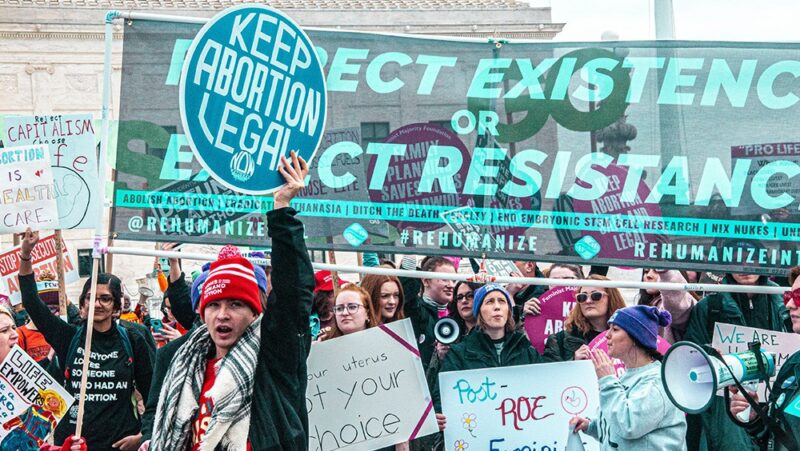Capitol Rioters Trampled On First Amendment Freedoms

Five people died as a result of the Jan. 6, 2021, mob assault on the U.S. Capitol – and their deaths will linger in the nation’s conscience.
But as days pass, we need to take notice of the long-lasting constitutional casualties of that violent incursion: Our rights to freely speak, assemble and petition the government.
As happened after the 9/11 terror attacks, the most immediate response from lawmakers to violence and personal threat is likely to be new legal guardrails on access to our elected representatives and new restrictions on the public places and practices of protest and dissent.
Assembly and petition are the least-known of the First Amendment’s five freedoms, but the pair has powered positive change throughout the nation’s history, giving voice to the least-privileged and least-heard among us. Most recently, those freedoms protected both the Black Lives Matter protests and demonstrations against COVID-19 restrictions.
The mob that charged into the House and Senate will give credibility to those already primed to enact state and federal legislation intended to discourage public protest and demonstrations of any kind.
Over the past five years, more than 40 state legislatures have been handed an Orwellian array of proposals in a coordinated national effort to stifle dissenting voices. The most extreme of those proposals would excuse drivers whose vehicles injure or kill demonstrators who are in public streets, increase the time citizens caught up in protest could be held in jail without formal charges, and empower authorities to “stack” multiple criminal charges with a goal of producing a “guilty” plea to lesser crimes.
Don’t think you’re immune to the impact of the Capitol invasion just because you don’t live in Washington. Small groups reportedly tried to enter a half-dozen state capitol buildings. And a host of local officials across the country – city councils to school boards – have recently tried to limit the public’s ability to participate in – and sometimes even attend – meetings by requiring extensive prior notice or enacting severe restrictions on topics and presentations.
In the area of free speech, there will be even more pressure to regulate speech on social media – which extremists used to organize the Capitol Hill travesty. The focus will be two-fold: forcing tech companies to act against incendiary or hateful speech, with the threat of direct government oversight as a cudgel – raising serious First Amendment concerns. And then there is the ongoing dispute over the legal protections to social media giants that Section 230 of the 1996 Communications Decency Act provides. They are generally immune from legal action against what users post on their sites.
Expect a sudden, even shocking awareness for people as they find the First Amendment only protects their speech from government reprisals, and does not apply to private companies or employers.
Within 24 hours of the attack on the Capitol, Twitter, Facebook and Instagram suspended or blocked President Donald J. Trump’s accounts through at least the end of his term on Jan. 20, 2021, saying his posts are likely to incite violence or contain false information about the 2020 election.
An employee was fired by Maryland-based Navistar Direct Marketing after the firm discovered that a man wearing a company badge was photographed inside the Capitol during the riot. “While we support all employees’ right to peaceful, lawful exercise of free speech, any employee demonstrating dangerous conduct that endangers the health and safety of others will no longer have an employment opportunity” there, the company said.
As to a free press, conditions likely will remain mixed. While President-elect Joseph R. Biden has long rejected Trump’s characterization of the press as “enemies of the people,” journalists reported being threatened during a pro-Trump rally just before the Capitol attack, and during the riot:
- One news organization’s equipment was “stolen and destroyed.”
- Two Washington Post journalists were detained briefly for violating a 6 p.m. curfew – even though the D.C. mayor’s order exempted the news media.
- The New York Times reported Thursday that the words “murder the media” were scratched into a Capitol door panel.
Attacks on the press – including those by police – have increased in recent years. A December report by the nonprofit U.S. Press Freedom Tracker group, of which the Freedom Forum is a member, said in 2020 at least 110 American journalists were arrested or criminally charged while reporting, and around 300 journalists were assaulted over the year.
Beyond the direct damage to our core freedoms there will be the likely loss of everyday elements that help us put our First Amendment freedoms into practice. Being able to approach elected officials with relative ease didn’t guarantee our “petition” would achieve results – but it let us know we had been heard.
But in a harbinger of things to come, so-called “unscalable” tall, black metal fencing went up around the parklike grounds of the Capitol, blocking off the areas where the rioters gathered before smashing their way in. Speech just won’t seem as free when spoken through metal fences or from behind safety glass.
When the out-of-control crowd rambled through the Capitol and rifled offices and desks, they did worse harm than momentarily disrupt an Electoral College vote count and profoundly disrespect “The People’s House.”
The rioters – out of ignorance or arrogance – trampled on the very freedoms many claimed to be defending.
Gene Policinski is a senior fellow for the First Amendment at the Freedom Forum. He can be reached at gpolicinski@freedomforum.org.
March for Life: 50 Years of the First Amendment in Action
Protesting on College Campuses: FAQs Answered
Related Content

